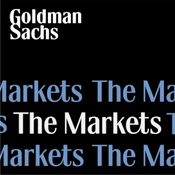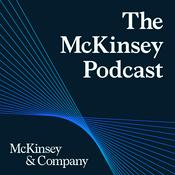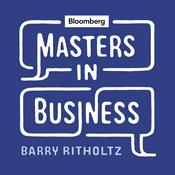40 episodios
- As the UN’s Secretary-General António Guterres said in July this year, “Now, we are on the cusp of a new era. Fossil fuels are running out of road. The sun is rising on a clean energy age.” Renewables and nuclear did reach an historic 40% share of global electricity generation in 2024, with renewables alone supplying roughly 32% of global power for the first time. But the length of this road and the speed we are travelling down it, will determine the success of the world’s energy transition. In this episode we explore where we are in the energy transition, the challenges, technologies and the policies. Joining Tom as guests are Elisabeth Cremona, Senior Energy Analyst for Europe at Ember, Massimo Battaini, CEO of Prysmian and María Mendiluce, CEO of We Mean Business Coalition.
Sources: FT Resources
This content is paid for by Prysmian and is produced in partnership with the Financial Times' Commercial Department. The views and claims expressed are those of the guests alone and have not been independently verified by The Financial Times.
Hosted on Acast. See acast.com/privacy for more information. - The fourth industrial revolution is upon us in every way. Technologies, such as Artificial Intelligence, are growing up fast. So too must the humans that deploy and use it. Evolution is usually a slow process, yet businesses around the world must quickly reconfigure the way they work to gain the advantages that technology can afford. In this episode three experts join Tom to look at the human part of tech transformation, how we are adapting to work alongside tech such as AI, and how organisations are transforming their business operations to best adapt to the current and future needs of a tech savvy workforce. They are, Natalie Douglas, CFO at Liberty Blume, Professor Ashley Braganza, Chair in Business Transformation and Founder of Brunel University’s Centre for Artificial Intelligence and Kevin Frechette, Co-Founder and CEO of Fairmarkit.
Sources: FT Resources
This content is paid for by Liberty Blume and is produced in partnership with the Financial Times' Commercial Department. The views and claims expressed are those of the guests alone and have not been independently verified by The Financial Times.
Hosted on Acast. See acast.com/privacy for more information. - Late-stage financing plays a critical role in the growth trajectory of technology scale-ups, particularly as they transition from early innovation phases to market dominance and potential exits via IPOs or acquisitions. Larger capital injections can be found from multiple avenues; VCs, private equity, corporate investors, family offices, sovereign wealth funds and growth-focused hedge funds. While the volume of capital to European growth stage companies since 2015 has tripled, there is still a funding gap and bottlenecks in Europe compared to the US.
In this episode three experts discuss Europe's growth stage tech landscape, the funding available, challenges ahead and what is needed to build more billion dollar companies in Europe. They are Luca Ferrari, Co-Founder & CEO of Bending Spoons, Hilary Gosher, Managing Director at Insight Partners and Tommaso Fassati, Head of Wealth Management Italy at BNP Paribas.
Sources: FT Resources, Atomico, Roland Berger, Anthropic, European Commission, Semiconductor Industry Association, Korn Ferry
This content is paid for by BNP Paribas and is produced in partnership with the Financial Times' Commercial Department. The views and claims expressed are those of the guests alone and have not been independently verified by The Financial Times.
Hosted on Acast. See acast.com/privacy for more information. - Across October 2025, 315,000 private flights departed worldwide, a 5% increase on 2024. While this is less than 1% of monthly commercial flights globally, private jet travel is still on the rise. The Covid-19 pandemic saw an increase in private travel for health reasons and with hybrid working now popular, private business travel is gaining momentum. But there are many areas the industry needs to focus on over the next five years to maintain growth. In this episode we look at the future of private aviation, exploring the trends, sustainability challenges and the technologies that could power flight in the future. I speak with Adel Mardini, CEO of Jetex a private aviation company based in Dubai with fixed-base operators and ground handling stations in over 50 locations worldwide. Alongside Adel is JoeBen Bevirt, Founder and CEO of Joby Aviation, a global leader in electric powered flight.
Sources: FT Resources, Forbes, FlyAPG, Lifestyledaily.com, Nature.com, US Environment Protection Agency, UK Government, privatejetcardcomparisons.com
This content is paid for by Jetex and is produced in partnership with the Financial Times' Commercial Department. The views and claims expressed are those of the guests alone and have not been independently verified by The Financial Times.
Hosted on Acast. See acast.com/privacy for more information. - At the start of 2025 there was optimism that the global M&A market would strengthen with the expectation that inflation and interest rates would fall and a more favourable regulatory environment would exist. Yet it was a slow start amid uncertainty. The unpredictability of US trade policy under the Trump administration saw the global Economic Policy Uncertainty Index rise to a 30 year record high in early 2025, decreasing the appetite for deals. But M&A still remains a critical part of a companies growth strategy. So where will the M&A market be at the end of this year and over the next five years? And how can business leaders manage a successful M&A in today's climate and tomorrow's world? Here to discuss this further are Brian Salsberg, Snr Managing Director & Global Head of M&A at FTI Consulting and Massimo Battaini, CEO of Prysmian.
Sources: FT Resources, Morrison Foerster, St.Louis Fed, McKinsey, World Uncertainty Index, JP Morgan
This content is paid for by Prysmian and is produced in partnership with the Financial Times' Commercial Department. The views and claims expressed are those of the guests alone and have not been independently verified by The Financial Times.
Hosted on Acast. See acast.com/privacy for more information.
Más podcasts de Economía y empresa
Podcasts a la moda de Economía y empresa
Acerca de The Next Five
The Next Five is the FT’s partner-supported podcast, exploring the future of industries through expert insights and thought-provoking discussions with host Tom Parker. Each episode brings together leading voices to analyse the trends, innovations, challenges and opportunities shaping the next five years in business, technology, health and lifestyleThis content is paid for by advertisers and is produced in partnership with the Financial Times’ Commercial Department Hosted on Acast. See acast.com/privacy for more information.
Sitio web del podcastEscucha The Next Five, CREATIVO y muchos más podcasts de todo el mundo con la aplicación de radio.net

Descarga la app gratuita: radio.net
- Añadir radios y podcasts a favoritos
- Transmisión por Wi-Fi y Bluetooth
- Carplay & Android Auto compatible
- Muchas otras funciones de la app
Descarga la app gratuita: radio.net
- Añadir radios y podcasts a favoritos
- Transmisión por Wi-Fi y Bluetooth
- Carplay & Android Auto compatible
- Muchas otras funciones de la app


The Next Five
Escanea el código,
Descarga la app,
Escucha.
Descarga la app,
Escucha.


































